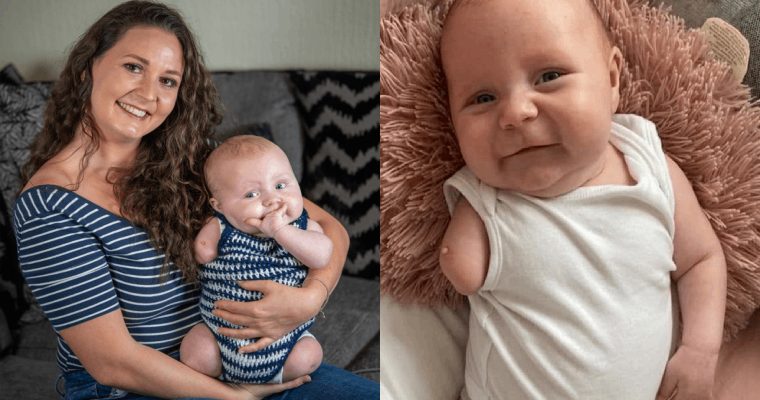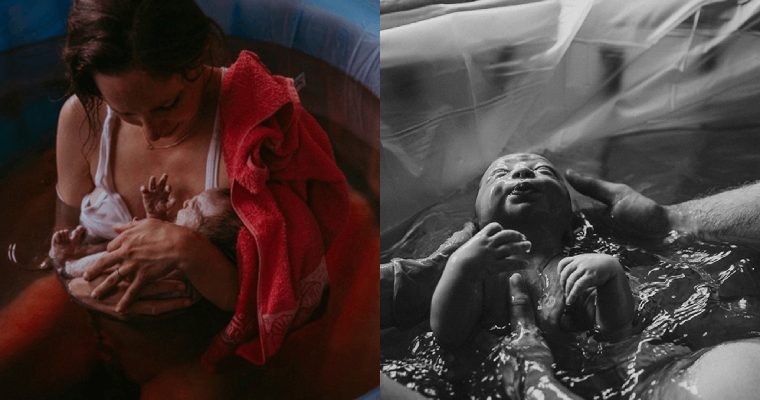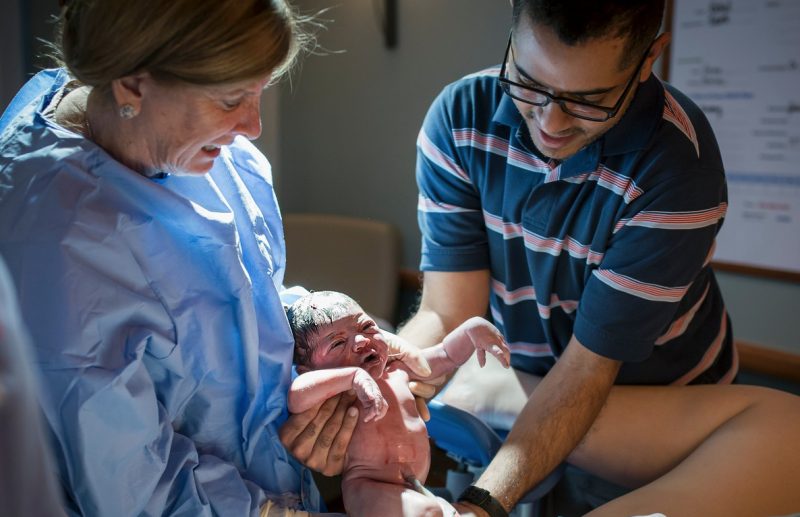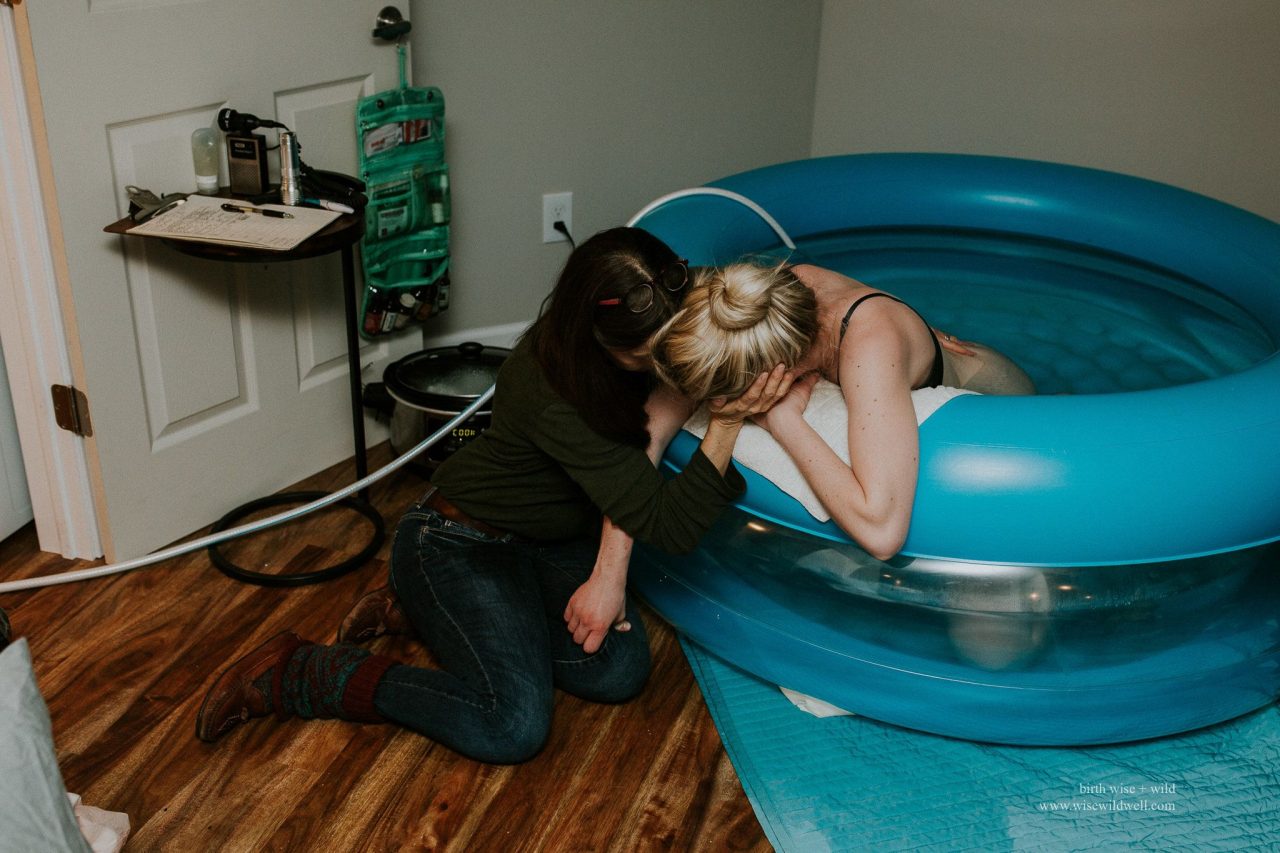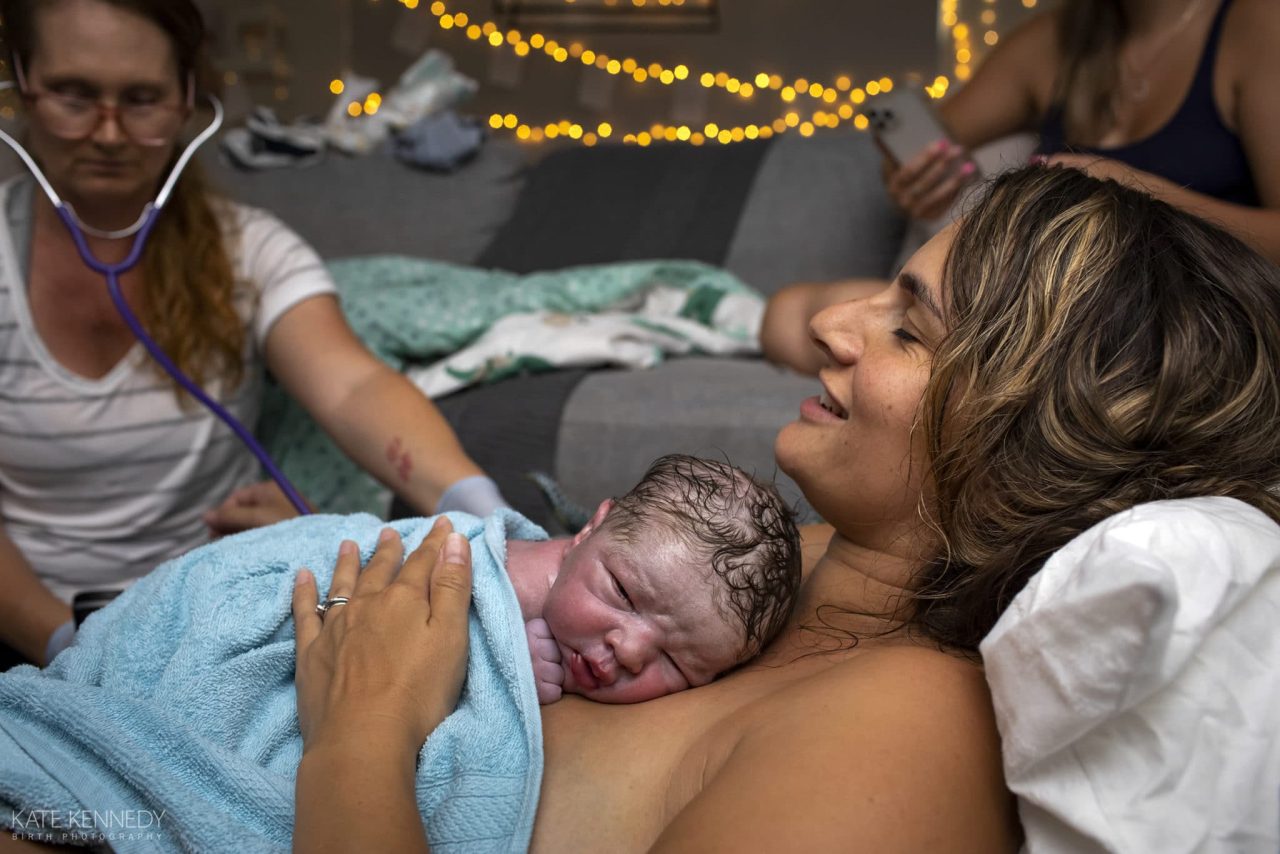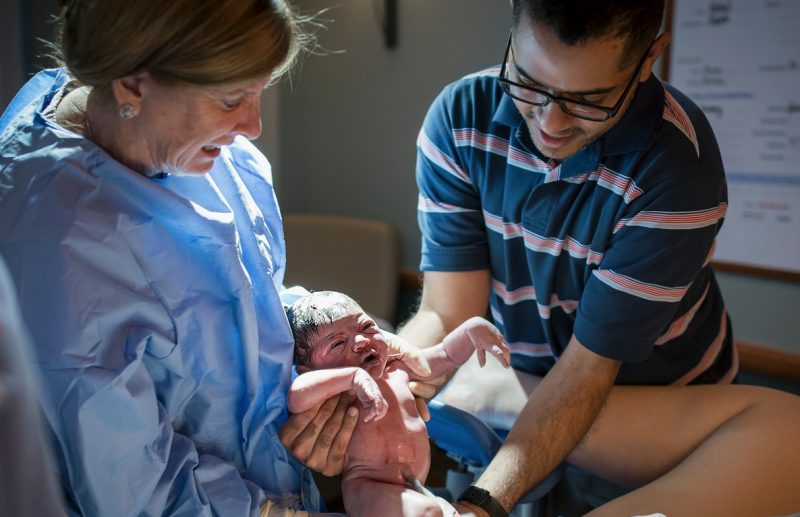“‘Did anyone tell you that your daughter does not look normal?’
 Courtesy of Leandri Wallace
Courtesy of Leandri Wallace
These were the first words Gracen’s pediatrician said to us when he saw us. She was in NICU, and I hadn’t even been able to see her. I started feeling my heart throbbing in my throat, and I told myself this couldn’t be real.
My absolute biggest fear as a teenager and a young woman was to one day have a child that is not ‘normal.’ I was petrified of the thought, and I was even more afraid of having a child with Autism. Little did I know that I was going to have a beautiful little girl that was both.
Gracen was born with Chromosome 17p13.3 Duplication Syndrome and Trisomy 17. At 38 weeks, I was induced, as it appeared that she had lost weight from her previous scan. She was eventually born via emergency C-section, weighing only 1.97kg and being only 41cm long.
 Courtesy of Leandri Wallace
Courtesy of Leandri Wallace
‘9.5 Mb duplication involving the region 17p13.3 to 17p13.1. We have been unable to find an identical duplication to Gracen’s in the literature.’ (Unistel Medical Laboratories)
These were the words that turned our world upside down after microarray genetic testing was done in a UK lab. How could this be? Her condition is extremely rare, and no one could tell us what to expect for her future. At the time, she was the only one diagnosed with this condition in South Africa.
I remember crying on the phone to my family and asking them if they thought she looked abnormal. I wanted someone to tell me that it was not true and that they made a mistake, but this was no mistake, and this was now our new life.
Problems started from the word go, as she struggled with severe reflux and feeding problems. She was just different from other babies her age, but somehow, I still tried to push my worries aside and tell myself, ‘She will grow out of it,’ but obviously, that was not the case. Her behavior was erratic sometimes, and she never cried like a baby. She also would never sleep in the day, not even as a new baby.
 Courtesy of Leandri Wallace
Courtesy of Leandri Wallace
Now, 8 years later she needs full-time care.
At the age of 6 months, she was having severe reflux and vomiting, excessive sweating episodes, and always looking upwards. She was sent for a lumbar punch and an EEG, and we were devastated to be told that Gracen was having seizures. From here onwards Gracen was admitted to hospital almost monthly for the next 3 years. Her immune system was compromised, and she was always sick. We were eventually referred to numerous specialists in Cape Town, where she had to undergo various invasive tests, resulting in us returning to Cape Town 2 months later, where Gracen (at the age of 1 year) received a stomach feeding tube and the Nissan reflux surgery.
Things were meant to get better, but they only got worse. Gracen continued to vomit, have severe diarrhea, and almost ‘pass out’ with every 30ml meal we had to give her every 2 hours. She wasn’t thriving the way everyone expected. I was being told all the time that this was normal, but my gut feeling didn’t agree. After a lot of reading and investigating, I finally found a possible answer. Dumping Syndrome.
Dumping syndrome occurs when food, especially sugar, moves too quickly from the stomach to the duodenum—the first part of the small intestine—in the upper gastrointestinal (GI) tract. This condition is also called rapid gastric emptying. It is mostly associated with conditions following gastric or esophageal surgery, though it can also arise secondary to diabetes or to the use of certain medications; it is caused by an absent or insufficiently functioning pyloric sphincter, the valve between the stomach and the duodenum.
 Courtesy of Leandri Wallace
Courtesy of Leandri Wallace
Dumping syndrome has two forms, based on when symptoms occur. Early dumping syndrome occurs 10 to 30 minutes after a meal. It results from the rapid movement of fluid into the intestine following a sudden addition of a large amount of food from the stomach. The small intestine expands rapidly due to the presence of hypertonic/hyperosmolar contents from the stomach, especially sweet foods. This causes symptoms due to the shift of fluid into the intestinal lumen, with plasma volume contraction and acute intestinal distention. Osmotic diarrhea, distension of the small bowel leading to crampy abdominal pain, and reduced blood volume can result.
Finally, I felt like I wasn’t just being paranoid but that something was actually wrong. Going back to Cape Town to have hourly glucose tests done was the only way this could be diagnosed. So, we did it. And she was finally diagnosed with Dumping Syndrome. Dumping Syndrome is more commonly found in people who are developmentally delayed and have undergone stomach surgery. Diagnoses helped us to make changes to almost everything we have been doing the past year, and she started to gain weight slowly and thrive.
But problems didn’t stop there. After some more brain scans and EEGs, we were told that her brain waves are much slower than they should be and that sadly she would never recognize us. This broke us completely. But miracles do happen! And at the age of about 2 years, I was waiting with her in x-rays one day, when my husband came walking toward us and she suddenly started flapping her arms out of excitement when she saw him. SHE RECOGNISED HIM!
 Courtesy of Leandri Wallace
Courtesy of Leandri Wallace
But the reality was that Gracen was developmentally and intellectually delayed. She also had Microcephaly, which causes the head circumference to stay small, resulting in her brain remaining small. Even though she is 8 years old, she is developmentally only about 1-2 years of age. She is still on nappies, needs to be fed, and cannot walk around or even get up on her own. She sadly cannot do anything for herself, but we always let her try. Perseverance has gotten us very far with Gracen.
We were told she would never walk or talk, but we started physical therapy and speech therapy when she was just under 2 years of age. She was also attending a stimulation center on weekdays from 8-12 to try and develop her as much as possible. But her Hypotonia (low muscle tone) and Cerebral Palsy in her legs and feet made it more difficult and had to undergo double Achilles Tendon Lengthening surgery. She was in casts for 6 weeks and recovery was slow, but today she can walk short distances with assistance.
As Gracen was getting older, we thought life would get easier. But it has proved to be extremely challenging in most ways. As she gets older, her Autism has proved to be more severe than we thought and has also left Gracen non-verbal. Having a non-verbal child is unimaginable to someone who hasn’t had to live through it themselves. Not knowing what your child wants or needs or why she is crying or upset, and never hearing her call me ‘Mommy’ is something I will never be able to completely accept. 8 years later, and I still try to teach her the word ‘Mommy’ every single day. I am hopeful for that miracle one day.
 Courtesy of Leandri Wallace
Courtesy of Leandri Wallace
At the age of 5 years, Gracen’s feeding tube was successfully removed, and can now eat orally. I must feed her as she cannot hold a spoon or even her drinking cup. She also has severe Sensory Processing Disorder and ADHD, which can all get a bit overwhelming at times for her, but we keep to a very strict routine and that has helped tremendously.
It was around this time of our journey that I think I finally accepted our future and that I could ‘mourn’ the child I initially thought I was going to have and let go of the future I had always imagined…Going to netball games, helping with homework, choosing her matric farewell dress, her first boyfriend, her wedding, and letting go of the idea of having grandchildren one day, but mostly letting go of the idea of having more children. This was the hardest part of my journey. Being a full-time carer to your child and working when I can makes me realize what is most important in life.
Realizing what we want out of life caused us to immigrate to Panama in October 2020, hoping to eventually be able to get Gracen stem cell treatment. We gave up everything we know and everyone who has stood by us through all these years, to leave it behind and try and give our family a better life.
 Courtesy of Leandri Wallace
Courtesy of Leandri Wallace
Sleeping in hospital chairs, riding with your child in the back of an ambulance, giving your child chronic medication every single day these past 8 years, learning to understand a non-verbal child, going through endless sleepless nights, sitting in the surgery waiting rooms to hear all went well, living a very isolated life and knowing I need to care for my child for the rest of my life…This is all part of our story, but we wouldn’t change it for anything. We would never have been the humble people we are today if we weren’t on this journey. It has taught us that every single day is a gift and that we have SO much to be grateful for.
Today, we take one day at a time, as every day has its challenges and rewards. It is a rewarding journey, but it is definitely not an easy one.”
 Courtesy of Leandri Wallace
Courtesy of Leandri Wallace
This story was submitted to Love What Matters by Leandri Wallace. You can follow their journey on Facebook. Submit your own story here. Be sure to subscribe to our free email newsletter for our best stories, and YouTube for our best videos.
Read more inspiring stories about children battling disorders here:
‘Your daughter will never be more than 2 feet tall.’ My husband and I broke down in tears. ‘…If she survives.’: Mom births baby with rare Thanatophoric Dysplasia, ‘I will never give up on her’
‘His hands are connected at his chest.’ We were in disbelief. He must have been making a mistake.’: Mom says son born with limb difference is perfect’ despite differences, ‘We believe in miracles’ for his future
‘I’m so sorry mommy wasn’t there to protect you.’ Forever didn’t last as long as we thought it would.’: Adoptive mom remembers medically-complex daughter after her passing
‘She was sent home with ‘acid reflux.’ She felt like a wet noodle. At 4 months, she was acting like a brand new baby.’: Mom advocates for undiagnosed, medically-complex warrior
Please SHARE on Facebook and Twitter to make others aware there is a community of support available.
583 Shares Tweet Email chromosome duplication, full time care, hospital vists, small victories ‘Sarah will always be my baby sister and best friend.’: Woman grieving loss of sister fundraises for Addison’s Disease Awareness‘A few months after my separation, Amanda decided 3 a.m. was a great time to drunk text me and declare her love.’: Mom of 3 recounts LGBT love story, ‘We were meant to find each other’
Source: lovewhatmatters.com



